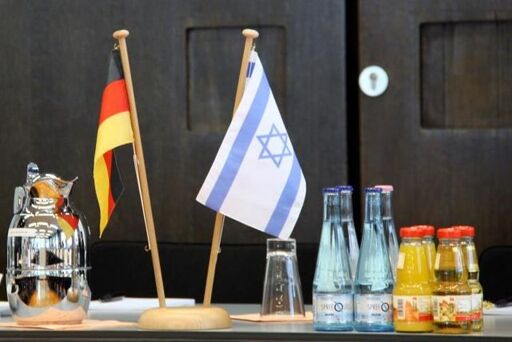Chancellor Olaf Scholz frequently reinforces his support of Israel, both through words and weaponry, and refers to the ‘Staatsräson’: the responsibility Germany has to protect the state of Israel after the Holocaust. Due to this concept, it may be considered too risky for any political parties to speak out about the genocide in Gaza, as there is a terrifying culture of censorship in contemporary German politics. Yet, the AfD’s support of Israel predates October 7th, for example, supporting Donald Trump’s decision to recognise Jerusalem as the capital. (This support is not mutual; Israel has cut all ties with the AfD.)
Following [the] October 7th attacks, Alexander Gauland (speaking as the honorary AfD chairman) said “The attack was not only aimed at the Jewish state, it was also aimed at us. Israel is the West in an environment that rejects and fights the West. When we stand with Israel, we are also defending our way of life”. This idea of ‘defending a way of life’ is common anti-immigrant rhetoric, and one the AfD frequently utilises to criticise immigration policy in Germany.
The AfD also submitted proposals in October to end financial donations to the United Nations Agency for Palestinian Refugees. Following this, a press release from the Bundestag said “the SPD accused the AfD of using Hamas’ terror to fuel Islamophobia”, and also mentioned a representative of the Greens calling out the antisemitic comments made by AfD members, as well as contacts between party members and Iran (who support Hamas).
The AfD is notorious for intra-party division, with some members decidedly far-right, and others leaning to the more moderate, Eurosceptic right. Attitudes to Israel are no exception, with co-leader Tino Chrupalla condemning the October 7th attack, but calling for ‘de-escalation’, also saying ‘a viable solution for all sides must be the goal’. This Tweet was criticised by many within the AfD, particularly his use of the word ‘war dead’ for Israeli victims.
The AfD have a long track record of antisemitism and neo-Nazi affiliations, ranging from Björn Höcke’s use of a Nazi paramilitary slogan (‘Everything for Germany’), to Alice Weidel’s advisor Roland Hartwig attending a meeting in Potsdam with known neo-Nazi groups. Specifically in relation to memory culture, Höcke was critical of Berlin’s Holocaust Memorial, saying Germans are “the only people in the world to plant a monument of shame in the heart of its capital.” How can a party claim to care about Jewish citizens when they show such blatant disrespect toward those who were murdered during the Holocaust?
Quoting Loathed by Jews, Germany’s far-right AfD loves the Jewish state (dated 2017):
The […] party derided for anti-Semitic, xenophobic views redolent of the Nazis is also staunchly supportive of Israel, one of a number of right-wing populist parties in Europe that have tried to make common cause with Israel’s tough stance toward terror and self-styled position as a forward bulwark against Islamic extremism.
Most German Jews repudiate the AfD as anti-Semitic, pointing to its anti-immigration and anti-Muslim platform and arguing that whoever targets Muslims and other minorities will sooner or later seek to harm the Jews’ religious freedoms.
“It is abhorrent that the AfD party, a disgraceful reactionary movement which recalls the worst of Germany’s past and should be outlawed, now has the ability within the German parliament to promote its vile platform,” said World Jewish Congress president Ron Lauder.
[…]
Over half of the AfD respondents said they “totally” agree with the statement that support for the anti-Israel Boycott, Divestment and Sanctions movement to be anti-Semitic; no other major party had such a strong opposition to BDS. […] Some 88% said Israel’s 70th birthday next year was a reason for Germans to celebrate, while fewer than 4% disagreed with that statement.
Support for the neocolony may be waning as of late, but mostly because almost everyone is getting really tired of an extermination campaign that has been dragging on for over a year now. Because of the diuturnal violence in Ukraine and the Middle East, the isolationist right has been growing in popularity.
Well, the Nazis also supported Zionism, so that does make sense.



